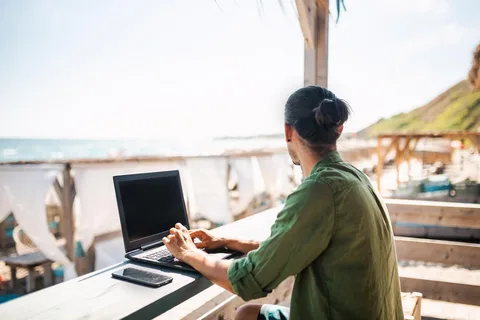Tech
How Bluepillow.com Empowers Digital Nomads with Disabilities

Traveling with confidence starts with the right tools
For digital nomads with disabilities, planning a trip isn’t just about dates and destinations—it’s about control, comfort, and knowing that your needs have been considered from the very first click.
Many booking platforms still treat accessibility as a checkbox. Filters are vague, descriptions are inconsistent, and the burden is on the user to decode what’s truly accessible. Bluepillow.com is changing that. By using predictive AI and human-aware design, it turns a complex, exhausting search into a smoother, more accessible experience for everyone—especially those who face daily challenges that others might overlook.
Bluepillow thinks with you—not for you
Digital nomads travel light, move often, and make decisions quickly. But for those with physical, sensory, or cognitive disabilities, each trip comes with additional layers of research and risk. Will the bathroom be accessible? Are there stairs at the entrance? Will the Wi-Fi be strong enough to work from?
Bluepillow’s intelligent filtering system learns from your preferences and anticipates the questions you might ask—even if you haven’t typed them in. For example:
- If you regularly select “step-free access,” the system may prioritize listings with elevators or ground-floor units.
- If you choose “quiet area,” it might suggest stays outside of busy nightlife districts.
- If you enable “strong Wi-Fi” and “dedicated workspace,” it adapts the results accordingly.
These aren’t generic filters—they’re context-aware suggestions, designed to reduce effort and increase confidence.
Bluepillow.com: Built for independence and clarity
The platform aggregates listings from hundreds of sources, but what sets it apart is how it filters and presents only what’s actually relevant. For digital nomads who already balance health routines, travel logistics, and remote work, this is more than convenience—it’s a form of digital autonomy.
The experience is also adapted to the way people interact with tech:
- Easy navigation for screen readers
- Clear layout for cognitive ease
- Mobile-first design for travel on the go
In short, Bluepillow doesn’t overload—it supports.
Travel smarter, not harder
Let’s be clear: traveling with a disability doesn’t limit curiosity, ambition, or spontaneity. But it does require a higher level of awareness. Bluepillow makes it easier to:
- Find stays with detailed accessibility information
- Discover less obvious, more inclusive destinations
- Avoid wasting time on listings that don’t fit your needs
The AI engine also learns from previous bookings and browsing behavior, helping surface options that align with your routine, comfort preferences, and accessibility standards.
Inclusivity is not an add-on. It’s the design.
What makes Bluepillow valuable isn’t just that it includes accessible properties—it’s that it prioritizes accessibility as part of the search logic. That’s a critical shift from many platforms where users must dig, guess, or contact hosts for clarification.
For digital nomads with disabilities, this means:
- Less guesswork
- More autonomy
- A travel experience shaped around your real context, not assumptions
Bluepillow.com helps digital nomads with disabilities plan and book with confidence—because true accessibility starts with how you’re treated when you search.
Smart. Empathetic. Designed with you in mind.





















































